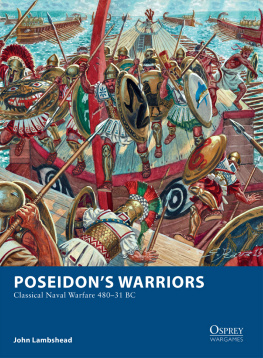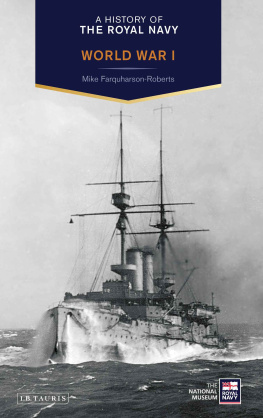FROM LIBAU TO TSUSHIMA
A Narrative of the Voyage of Admiral Rojdestvenskys Fleet to Eastern Seas, Including a Detailed Account of the Dogger Bank Incident
EUGNE S. POLITOVSKY
Published by Left of Brain Books
Copyright 2021 Left of Brain Books
ISBN 978-1-396-31875-7
eBook Edition
All rights reserved. No part of this publication may be reproduced, distributed, or transmitted in any form or by any means, including photocopying, recording, or other electronic or mechanical methods, without the prior written permission of the publisher, except in the case of brief quotations embodied in critical reviews and certain other noncommercial uses permitted by copyright law. Left of Brain Books is a division of Left of Brain Onboarding Pty Ltd.
Table of Contents
TRANSLATORS PREFACE
No detailed account of the voyage of the Russian fleet to the Far East has to my knowledge been published. The newspapers occasionally mentioned it as being here or there, and of course its doings in the North Sea are a matter of history; but from the time it left Tangier until it met its doom at Tsushima it was practically in oblivion. By chance this book came into my hands, and I thought it would interest British readers.
Much has been said in derision of Admiral Rojdestvenskys fleet, but every one must agree that it was no mean undertaking to have brought this large fleet out to the Far East from Russia and laid it alongside the enemy. This was done, in spite of the difficulties of coaling without bases and of having to repair damages in the open sea. The fleet had to pass countries that were bound by the laws of neutrality, and some that were actually hostile to it. It was driven out of many ports by the ships of its allies. In spite of all these drawbacks, it accomplished a tremendous voyage with all its units intact.
That it failed to win the battle is in no way surprising. A great number of the ships were useless and obsolete. The crews were disheartened by the failures of their comrades at Port Arthur. The beginning of the movements which resulted in the open mutiny in the Black Sea and in the recent mutiny at Cronstadt were developing.
Finally, the spirit of the officers was not of the Nelsonian standard. We find the captain of the cruiser Ural flaunting his desire to surrender without striking a blow for his country.
It must be remembered that the dates are those of the Old Style, thirteen days behind those of the New Style, which has not been adopted by Russia.
PREFACE
Eugne Sigismondovitch Politovsky , engineer-constructor of the second deep sea fleet flagship, was born at Tashkend on November 12th, 1874. He received his education at the Emperor Nicholas I. Naval Engineering School, and left it in 1897. Up to the departure of the fleet for the East he served at the Admiralty at St. Petersburg. He went down in his ship, the battleship Kniaz (Prince) Suvaroff, in the fight of May 14th, 1905. This diary consists of extracts from his letters to his wife, which it must be understood were not intended for publication.
The diary is written entirely from the personal point of view of the author. He shares with the human being dearest to him everything that occupies or interests him. He writes in fragments, with detached sentences, sometimes snatching a few spare minutes from his duties for his letters. His diary is a full one. Scarce a day is omitted from the departure from Libau up to May 11th.
Involuntarily, one is impressed by the sincerity and justice of the authors tone. As he thought, so he wrote.
His style is very simple and graphic, despite its fragmentary nature.
The author was a constructor, not a sailor. This was his first cruise. His views of all that he saw are those of an independent person, bound by no traditions or clannishness. They appear to be absolutely impartial. In addition, through his position on the staff he knew much that remained unknown to others.
From the very beginning he did not believe in success for the Russian navy. The further the fleet went the more apparent did it become to him that it was going on a desperate and hopeless mission. If you could but imagine what is going on, he writes if it were possible for me to tell you exactly all about ityou would be amazed. Should I live, I will tell you afterwards. No! there is no use our fighting. Things have come to such a pass that I can only wring my hands and feel assured that no one can escape his fate, for this is the only possible assurance.
He took his duty very seriously and responsibly. Damages to the ships, and especially to the torpedo-boats, were constantly occurring, and it was necessary to repair them with self-improvised means under the most trying circumstances. For instance, can you not imagine the following scene? A torpedo-boat in the open sea with a damaged rudder. Divers must be sent to repair it. The swell is tremendous, the boat is rolling fearfully, and around it are sharks. They lower the diver; he is knocked about by the sea all the timetake care that he is not permanently disabled. They watch the sharks and drive them away with shots from a rifle. In spite of all these difficulties the repairs are completed.
Not one ship did the fleet leave behind, and this was in a great measure due to Politovsky. Whatever the weather, he tirelessly went from one ship to another, thinking out means of repair and accommodating himself to the most improbable and difficult circumstances, and always emerging from them with honour. Every one remembers his great work in getting the battleship Apraxin off the rocks at Gothland, where she had struck, icebound, in the winter of 1899.
With ships of the Suvaroff class he was well acquainted. From 1899 he was assistant-constructor of the Borodino, and this was probably the reason of his appointment to the fleet, an appointment destined to be fatal to him. How passionately he dreamed of the arrival at Vladivostok and of the possibility of returning to Russia! Alas! fate decided otherwise. He perished in his prime, being but thirty years old. Through his death our engineer-constructors have suffered a severe loss.
He was talented, clever, and energetic, with a vast experience gained from his cruise. What a valuable man he would have been in the construction of the new Russian fleet!
CHAPTER I.
Beginning the Voyage
August 28th.Events follow each other so fast that they get confused in the memory.
The return from the club in the morning, a frightened wife with a telegram, the rush from Petersburg to Cronstadt, hurried calls, appointment to the Suvaroff, good-byes, send-offs, a new service, etc., etc.
I am not yet accustomed to my new surroundings.
To-day I bade good-bye to the captain and officers of the Borodino, and to the foremen and workmen. They wished me good luck, drank my health, cheered, and the band played. They evidently had a very friendly disposition towards me.
The parting with the foremen and workmen was cordial. It was very sad to see their doleful faces. They all cried before the end of their farewell speeches. I kissed all and thanked them. They blessed me with the ikon of St. Nicholas. I promised to give them my photograph as a memento. I had nothing else to repay them with. I could think of nothing better.













